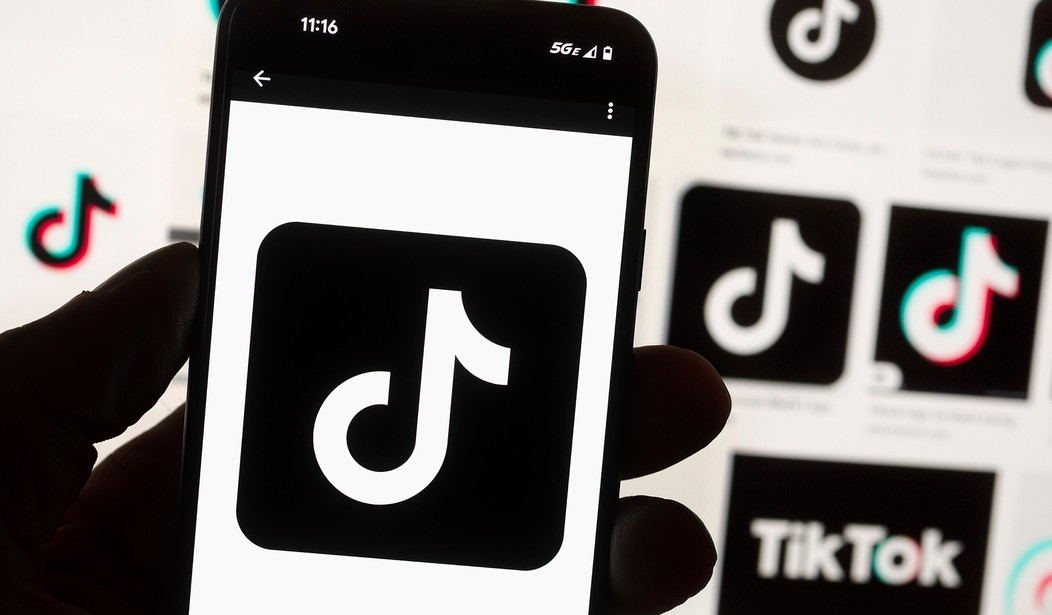In true-to-the-times fashion, alarmism over women's health and reproduction has led to social media censorship. Following a Washington Post article and pressure campaign, TikTok has removed videos speaking of the risks of hormonal birth control. Yet, there are risks.
WaPo painted the social media videos as coming from "right-wing" influencers, calling it an "explosion" of misinformation. It critiqued women blaming their weight gain on birth control, warning of long-term fertility risks and mental health issues. The piece also condemned the promotion of "natural methods."
WaPo's article boasts of the removal of at least five videos after asking TikTok about their content moderation policies, writing:
TikTok recently removed at least five videos linking birth control to mental health issues and other health problems after The Post asked how the company prevents the spread of misinformation.
The publication continued detailing the content censorship, writing,
Brett Cooper, a media commentator for the conservative Daily Wire, argued in a viral TikTok clip that birth control can impact fertility, cause women to gain weight, and even alter whom they are attracted to. It racked up over 219,000 “likes” before TikTok removed it following The Post’s inquiry.
Well, some hormonal birth control is known to cause fluid retention, and the package insert for Depo-Provera, an injected contraceptive, informs patients and clinicians that after one year, the average weight gain is 5.4 pounds, and after five years, the average gain is 16.5 pounds.
Women tend to gain weight while on therapy with Depo-Provera CI. From an initial average body weight of 136 lb, women who completed 1 year of therapy with Depo-Provera CI gained an average of 5.4 lb. Women who completed 2 years of therapy gained an average of 8.1 lb. Women who completed 4 years gained an average of 13.8 lb. Women who completed 6 years gained an average of 16.5 lb. Two percent of women withdrew from a large-scale clinical trial because of excessive weight gain.
There is also evidence that birth control can influence who women are attracted to. There are studies about male facial preferences between women who are on the pill and those who aren't, changes in relationship satisfaction with women who meet their partners while on the pill, and the way women feel about their partners in pregnancy after using hormonal birth control.
Our results indicate that a woman's use of OC at the time when she meets her partner has measurable downstream consequences for partnership outcome.
Candace Owens, a prominent conservative commentator, had a video removed from TikTok in which she referred to birth control pills and IUDs as "unnatural." Owens claimed to be advocating for women to realize that these methods are not normal and suggested she had heard feedback from women in her audience suggesting that copper IUDs can harm women's fertility. Aside from the fact that Owens was reprimanded for retelling what commenters had shared with her about their own experiences, WaPo also published that there was no medical evidence to support that IUDs have long-term impacts on fertility.
Except, there is medical evidence, right here:
While the current literature on return to fertility after use of LNG-IUD shows that 70–75% of women conceive within 1 year of removal, it also indicates that the rate of infertility after IUD removal may be double the commonly quoted rate of infertility in the general population of 15%.
It says that the rate of infertility after IUD removal may be as high as thirty percent. So, why can't women discuss this?
Of course, there are scientific papers available on mood and mental health impacts of hormonal birth control, too.
These findings suggest that mood changes may be among the most common perceived side effects of HC and speak to a disconnect between patients and providers when it comes to discussing the possibility of psychological side effects with HC.
Importantly, this study mentions a disconnect between women patients and providers on their experiences and healthcare issues. Social Media influencer Brittany Martinez, who promotes a birth control detox regimen that was removed by TikTok, responded to the article and the censorship with similar sentiments:
The questions you SHOULD be asking: why are so many women being dismissed and gaslit by their doctors to such a degree that they have to turn to social media to get answers from other women sharing their lived experiences?
And where can women turn to for reliable alternatives to hormonal birth control? But instead, you’ve decided to blame and shame the victims in all this - women.
I’m reminded of another recent time when you shamed and dismissed countless women who reported that their periods were being negatively affected by the Covid-19 vaccine.
I was slandered and labeled a “conspiracy theorist spreading misinformation” because the media company I founded was the first women’s publication that broke the story about the vaccine affecting menstrual cycles.
How did we know it was happening? Because we actually listened to thousands of women. We didn’t tell them, “that’s not happening to you.” And it turns out, we were right. It’s now an indisputable fact that the covid vaccine - among many of its issues - was negatively affecting women’s menstrual cycles.
As we saw with COVID-19 and social media censorship, the authoritative information often turned out to be neither authoritative nor informative. And now, the health information battlefront has moved to abortion-centrics that dominate public discourse as an orchestrated wedge issue.
I'm not convinced that the information women are discussing is as unfounded, dangerous, or conspiratorial as has been suggested, as I found plenty of reliable information supporting aspects of the experiences women are reporting with birth control. While the left uses the abortion narrative as the piece de resistance of all freedom in America... why do they not allow women to freely discuss their reproductive health and experiences?
I don't intend to give reproductive advice here, but I do intend to... let women speak.
Read More:
Fauci Admits Social Distancing Wasn't Scientific and the Wuhan Lab Leak Wasn't a Conspiracy Theory
'Shocking' New Poll Finds Trust in Scientists Low Among Both Republicans and Democrats - Ya Think?













Join the conversation as a VIP Member